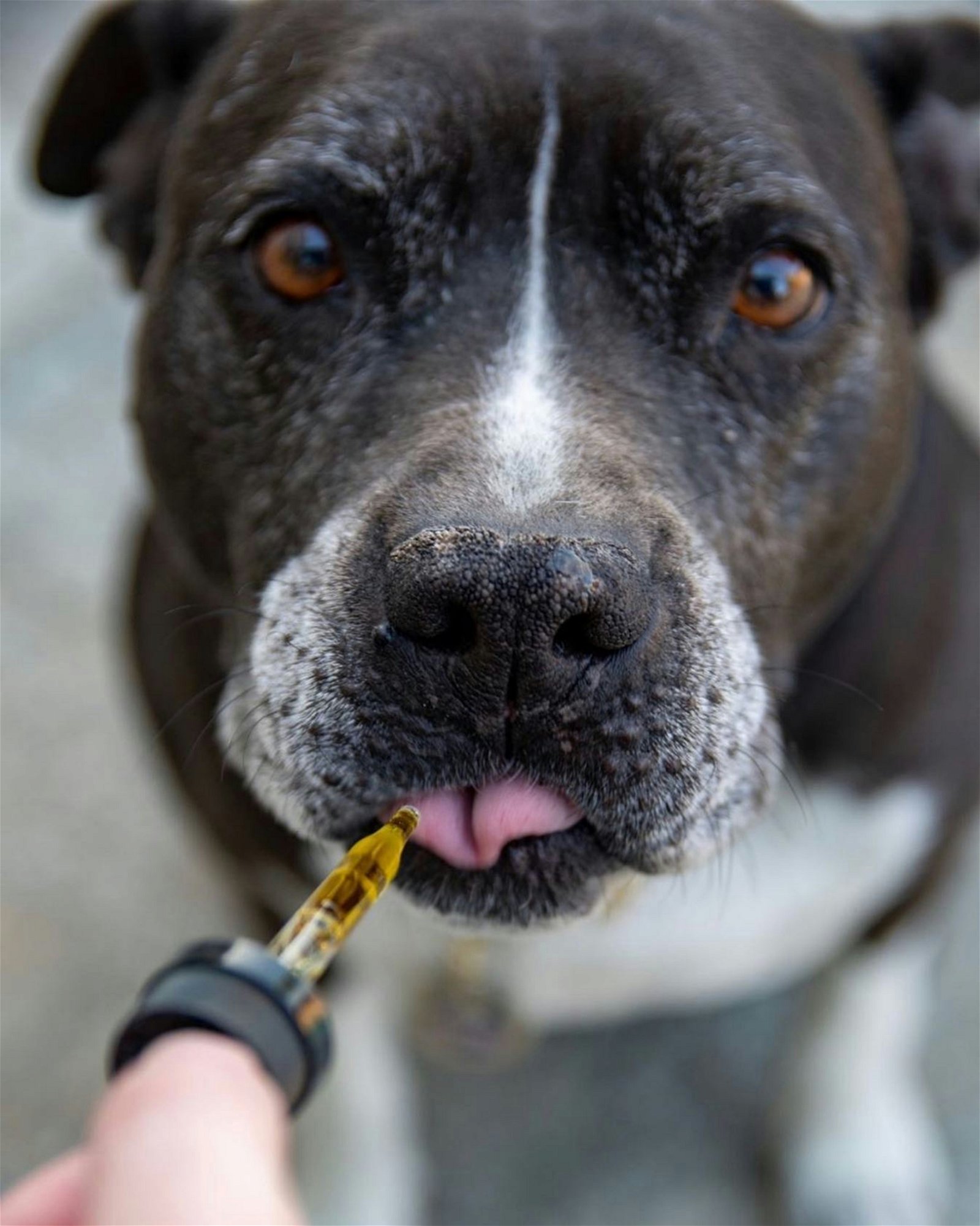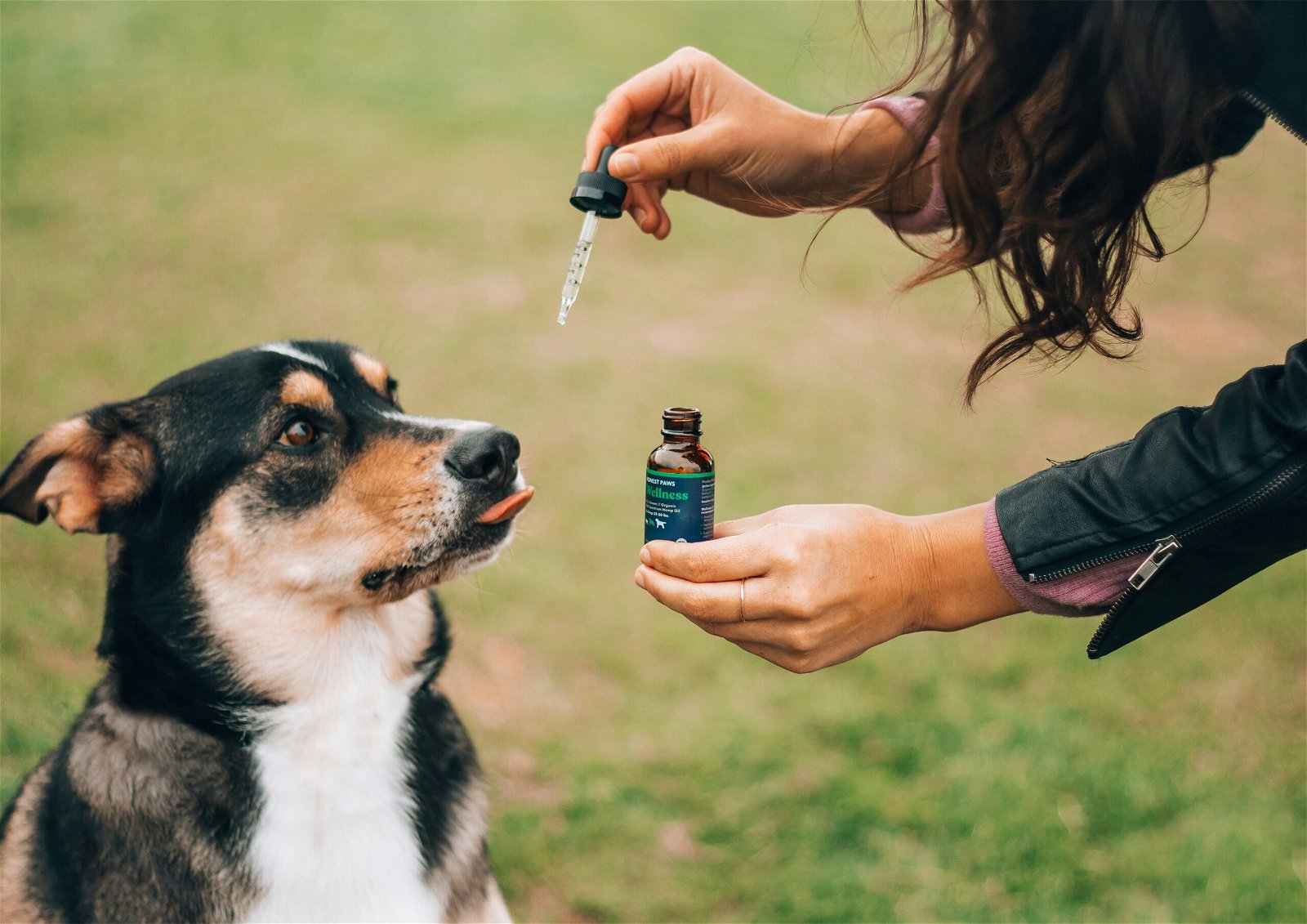The human-animal bond is undeniable. Our pets offer companionship, unconditional love, and a
furry (or feathery, or scaled) shoulder to lean on. Naturally, we want them to live long, happy,
and healthy lives. Traditionally, veterinary medicine has relied on pharmaceutical solutions, but
the landscape is shifting. Cannabinoids, naturally occurring compounds found in the hemp plant,
are emerging as potential tools for supporting pet wellness.
This article delves into the world of CBD, CBG, and CBN, exploring their potential benefits and
uses for our furry (or feathered, or scaled) friends.
The Endocannabinoid System: The Key to Understanding Cannabinoids
Before we dive into the specific cannabinoids, let’s explore the foundation: the endocannabinoid
system (ECS). This complex network of receptors and signaling molecules exists throughout the
body in both humans and animals, including our pets. The ECS plays a vital role in regulating
various physiological processes, including:
● Pain perception
● Inflammation
● Mood regulation
● Appetite
● Sleep
● Immune function
Cannabinoids, like CBD, CBG, and CBN, interact with the ECS in different ways. They can
mimic the body’s natural endocannabinoids or influence how receptors respond, potentially
leading to a range of therapeutic effects.
CBD (Cannabidiol): The Calming Champion
CBD is perhaps the most well-known cannabinoid. Research suggests it interacts with the ECS
in a way that promotes relaxation and reduces anxiety. This can be a game-changer for pets
experiencing:
● Separation anxiety
● Noise phobias (e.g., thunderstorms, fireworks)
● Travel stress
● General nervousness
Beyond its calming effects, CBD’s anti-inflammatory properties hold promise for pets suffering
from:
● Arthritis
● Joint pain
● Muscle soreness

CBG (Cannabigerol): The Rising Star
CBG, often referred to as the “mother cannabinoid“, is a precursor molecule to other
cannabinoids like THC and CBD. While research is still in its early stages, CBG shows exciting
potential for pet health. Studies suggest CBG may:
● Support a healthy inflammatory response
● Promote a positive mood
● Offer neuroprotective benefits (protect nerve cells)
These potential benefits make CBG a promising candidate for managing:
● Discomfort associated with chronic conditions
● Mood disorders like anxiety or depression
Unlike CBD, which can have a calming effect, CBG is thought to have an uplifting effect, making
it a good option for pets needing a boost in their mood or energy levels.
CBN (Cannabinol): The Sleepy Cannabinoid
CBN is a breakdown product of THC, but don’t worry, it’s non-psychoactive! This cannabinoid
has garnered the nickname “the sleepy cannabinoid” due to its potential to promote relaxation
and support restful sleep. This could be beneficial for pets experiencing:
● Anxiety-induced sleep disturbances
● Age-related sleep issues
Additionally, CBN, when combined with CBD, may create a synergistic effect, meaning they
work together to enhance the overall benefits for your pet.
Important Considerations for Pet Parents
While the potential of cannabinoids for pet health is exciting, there are some key points to
remember:
● Always consult your veterinarian before introducing any new supplement to your pet’s
routine. Your veterinarian can advise on the appropriate dosage, potential interactions with
medications, and potential side effects specific to your pet’s health condition.
● Start with a low dose and monitor your pet closely. Observe their behavior and look for
any signs of discomfort. Gradually increase the dose as needed, always under the guidance
of your veterinarian.
The Future of Cannabinoids in Pet Care
Research on the use of cannabinoids for pets is ongoing, and the field is rapidly evolving.
In the future, we may see cannabinoid-based therapies targeted for specific pet health
conditions, offering a more holistic approach to veterinary care.
Remember, a happy and healthy pet makes for a happy pet parent! By understanding the
potential of cannabinoids and consulting with your veterinarian, you can take another
step towards ensuring your furry (or feathered, or scaled) friend thrives.
Disclaimer: This article is for informational purposes only and is not a substitute for
professional
The human-animal bond is undeniable. Our pets offer companionship, unconditional love, and a
furry (or feathery, or scaled) shoulder to lean on. Naturally, we want them to live long, happy,
and healthy lives. Traditionally, veterinary medicine has relied on pharmaceutical solutions, but
the landscape is shifting. Cannabinoids, naturally occurring compounds found in the hemp plant,
are emerging as potential tools for supporting pet wellness.
This article delves into the world of CBD, CBG, and CBN, exploring their potential benefits and
uses for our furry (or feathered, or scaled) friends.
The Endocannabinoid System: The Key to Understanding Cannabinoids
Before we dive into the specific cannabinoids, let’s explore the foundation: the endocannabinoid
system (ECS). This complex network of receptors and signaling molecules exists throughout the
body in both humans and animals, including our pets. The ECS plays a vital role in regulating
various physiological processes, including:
● Pain perception
● Inflammation
● Mood regulation
● Appetite
● Sleep
● Immune function
Cannabinoids, like CBD, CBG, and CBN, interact with the ECS in different ways. They can
mimic the body’s natural endocannabinoids or influence how receptors respond, potentially
leading to a range of therapeutic effects.
CBD (Cannabidiol): The Calming Champion
CBD is perhaps the most well-known cannabinoid. Research suggests it interacts with the ECS
in a way that promotes relaxation and reduces anxiety. This can be a game-changer for pets
experiencing:
● Separation anxiety
● Noise phobias (e.g., thunderstorms, fireworks)
● Travel stress
● General nervousness
Beyond its calming effects, CBD’s anti-inflammatory properties hold promise for pets suffering
from:
● Arthritis
● Joint pain
● Muscle soreness
Reduces inflammation: CBD has anti-inflammatory properties and could be useful for treating inflammatory conditions such as arthritis and inflammatory bowel disease.
Improves sleep: CBD may help improve sleep quality by increasing deep sleep duration and reducing nighttime awakenings.
Alleviates epilepsy symptoms: CBD has been effectively used to treat epilepsy, especially in cases that don’t respond to other medications.
Other potential benefits: CBD is being investigated for its potential to aid in the treatment of numerous conditions, including cancer, schizophrenia, and Alzheimer’s disease.

CBG (Cannabigerol): The Rising Star
CBG, often referred to as the “mother cannabinoid“, is a precursor molecule to other
cannabinoids like THC and CBD. While research is still in its early stages, CBG shows exciting
potential for pet health. Studies suggest CBG may:
● Support a healthy inflammatory response
● Promote a positive mood
● Offer neuroprotective benefits (protect nerve cells)
These potential benefits make CBG a promising candidate for managing:
● Discomfort associated with chronic conditions
● Mood disorders like anxiety or depression
Unlike CBD, which can have a calming effect, CBG is thought to have an uplifting effect, making
it a good option for pets needing a boost in their mood or energy levels.
CBN (Cannabinol): The Sleepy Cannabinoid
CBN is a breakdown product of THC, but don’t worry, it’s non-psychoactive! This cannabinoid
has garnered the nickname “the sleepy cannabinoid” due to its potential to promote relaxation
and support restful sleep. This could be beneficial for pets experiencing:
● Anxiety-induced sleep disturbances
● Age-related sleep issues
Additionally, CBN, when combined with CBD, may create a synergistic effect, meaning they
work together to enhance the overall benefits for your pet.
Important Considerations for Pet Parents
While the potential of cannabinoids for pet health is exciting, there are some key points to
remember:
● Always consult your veterinarian before introducing any new supplement to your pet’s
routine. Your veterinarian can advise on the appropriate dosage, potential interactions with
medications, and potential side effects specific to your pet’s health condition.
● Start with a low dose and monitor your pet closely. Observe their behavior and look for
any signs of discomfort. Gradually increase the dose as needed, always under the guidance
of your veterinarian.
The Future of Cannabinoids in Pet Care
Research on the use of cannabinoids for pets is ongoing, and the field is rapidly evolving.
In the future, we may see cannabinoid-based therapies targeted for specific pet health
conditions, offering a more holistic approach to veterinary care.
Remember, a happy and healthy pet makes for a happy pet parent! By understanding the
potential of cannabinoids and consulting with your veterinarian, you can take another
step towards ensuring your furry (or feathered, or scaled) friend thrives.
Disclaimer: This article is for informational purposes only and is not a substitute for
professional




